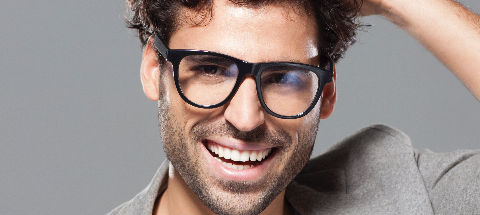Driving and Vision

Ensuring your vision and eyewear is fit for driving . . .

Of growing concern . . .
With an increase in publicity concerning poor eyesight and driving, it's no wonder that we are seeing more people enquiring about eye exams and driving standards. From recent reports it's becoming clear that there is a growing problem with drivers either not wearing their glasses when they should be or, worse still, not even having glasses for driving despite their Optician advising that they must wear glasses to meet the minimum safe driving standards. An RAC report earlier this year highlighted an increase in road traffic collisions attributed to poor eyesight and now the government is considering a review of the laws surrounding vision standards for driving.

I already have a prescription. Can I tell if I need to wear glasses for driving?
Most optical prescriptions include a measurement of your corrected visual acuity in each eye (How well you can see with the given prescription), however most do not include your uncorrected visual acuity (how well you can see without any prescription). This is normally something only your Optician can tell you about during an eye exam.

What are the safe driving standards?
As a basic guide, a driving test examiner or police officer may ask you to read a car number plate at a distance of 20 meters. If you cannot do so this, it gives an indication that your vision does not meet the safe driving standards. The above method though is not particularly scientific. The only surefire way to know is to have your eyes professionally tested by a qualified Optician. You must meet the minimum eyesight standard for driving by having a visual acuity of at least 6/12 (measured with glasses or contact lenses, if necessary) using both eyes together or, if you have sight in one eye only, in that eye.
You must also have an adequate field of vision - your optician can tell you about this and carry out a fields test, if required.

I bought distance glasses for driving about six years ago, surely they are still fine?
They could be but only an Optician can tell you for sure. The problem here is that over time your prescription can change and because this is a gradual process you may not have noticed that distant objects are not as clear as they used to be. Your visual acuity with your glasses on may have meet the safe driving standards back then but may now fall outside of them.

Can I not just wear my sunglasses while driving at night?
Absolutely not! The dark tinted lenses are designed to reduce the amount of light entering your eyes. During the day this is fine however at night the tinted lenses reduce your visual acuity (how well you can see) often resulting in you no longer meeting the safe driving standards.
Improving your view from behind the wheel . . .

Consider reflection-free coated lenses . . .
By their very nature, spectacle lenses are smooth and shiny and this can result in a lot of reflected light causing unnecessary dazzle when driving.
The easy solution is to make sure you ask for your lenses to be reflection-free coated. They will still look smooth and shiny but they will act as though they are matt and, you will enjoy a better visual experience when wearing your glasses to drive.

Consider sunglasses for daytime driving . . .
Whether you require a prescription or not to meet the safe driving standards, a decent pair of polarised sunglasses can improve you view of the road ahead. They reduce glare, improve contrast and depth perception and, with polarised lenses, you will see less reflected glare from wet roads and other vehicles.
We recommend: Maui-Jim Sunglasses for the ultimate driving experience but remember - only for daytime driving, not at night . . .
Consider light-reactive lenses . . .
If you would prefer to have just one pair of glasses for driving that do everything, consider asking for light-reactive lenses. At night time they will be clear and during the day they will darken depending on how bright the sunlight is. We recommend both Transitions XtraActive and Sensity Dark lenses for drivers. Both are available across most of our lens options.
Become a member and save on driving glasses




